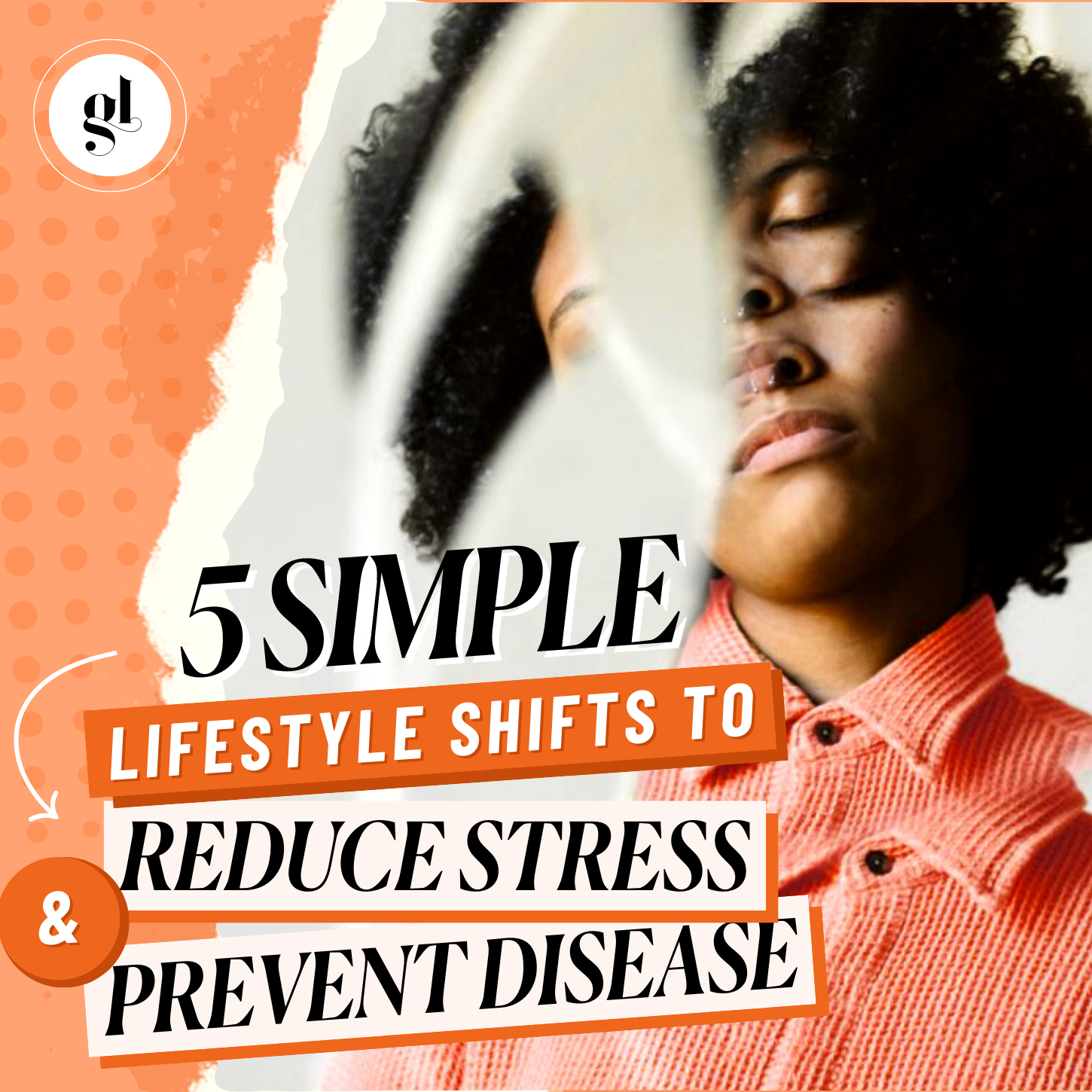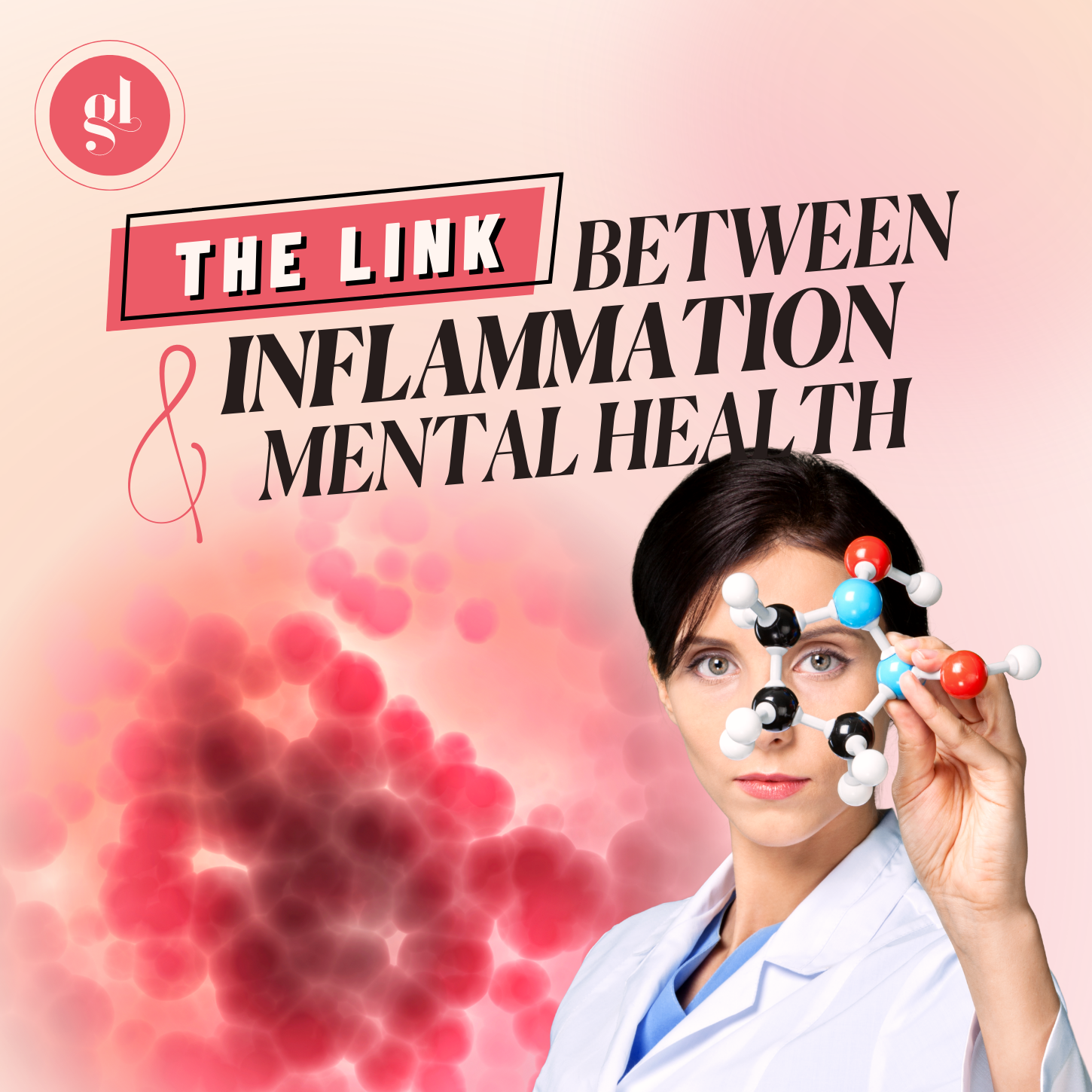Transcript: 5 Simple Lifestyle Shifts to Reduce Stress and Prevent Disease
Stress. Even just hearing that word may stress you out, but be assured, you are not alone in this experience.
In fact, the current pandemic and the social, political and economic upheaval of these times have fueled unprecedented levels of anxiety and stress. Everyone is pulling their hair out!
We all know that the world in which we live gives us plenty of good reasons to feel concerned about our lives and about our future. Illness, money problems, relationship issues, heck even politics…all these things are very real stressors. But when it comes to stress, it’s about our capacity to respond, and the harder things get, the more important it is to find a calm and healthy approach.
I know this is easier said than done of course. But the good news is that there are many self-care strategies backed by science that can help you respond to whatever challenges life throws at you with as much resiliency as possible.
So let’s unpack stress and what actually happens in the body when we are stressed.
Now regardless of the stressor, whether it’s a stubbed toe or an upcoming exam…our body produces stress hormones just in case that stressor poses a real physical threat to our life. Fortunately for us, we have our very own in-built hormonal messaging system that helps to switch on the “fight or flight” response throughout the whole body. This system is known as the Hypothalamic-Pituitary-Adrenal axis (otherwise known as the HPA axis). Quite a mouthful I know!
When you’re facing a stressor, your adrenal glands secrete cortisol and your body shifts into the sympathetic nervous system state. In this state, under the direction of signals from the brain, a number of things happen:
- your body frees up stored sugars for a burst of energy,
- your heart rate and blood pressure increases,
- and your digestive system is temporarily put on hold. All this is done to give you the energy you need to escape from a risky situation or to stay and fight.
Now normally, once the stress has passed, hormones are released that prompt a shift back to the parasympathetic nervous system state which is the mode that supports digestion, healing, immunity, and proper metabolic function.
Unfortunately, often our stress today doesn’t go away, and our nervous system becomes stuck in this state of alarm.
When we’re in this “fight or flight” alarm mode, we have higher levels of glucose circulating in our bloodstream.
This, of course, prompts our pancreas to release more insulin to try and clear the glucose. Eventually, our cells can start becoming resistant to insulin.
With elevated cortisol levels, the body also produces less testosterone, leading to a decrease in muscle mass, and your body starts burning fewer calories. This can lead to the dreaded belly fat.
Activation of your stress response system also increases the production of pro-inflammatory chemicals. Inflammation can cause a leaky gut and leaky brain, that may eventually give rise to autoimmunity, where your immune system begins attacking your body’s own healthy tissue.
So all these various outcomes caused by a poor response to stress (insulin resistance, weight gain, abdominal fat, and inflammation) can lead to type 2 diabetes as well as increase the risk for cardiovascular disease, stroke and a host of autoimmune diseases.
So what does the science say? Well I don’t want to leave you with just the doom and gloom. I want to give you the 5 top tips that you can implement today to enhance your response to stress.
1. Meditation
Meditation is a great stress management tool as it is ultimately about reprogramming the brain to cope better with stress. In training the mind to be more open and less reactive, it helps you change the way you view and relate to stress. Whether it’s guided meditation, silent meditation, self-meditation with music, this practice can be hugely rewarding for your stress levels.
2. Deep breathing exercises
This is something so many of us get wrong! Shallow breathing is a signal that communicates to the body that something is wrong, that danger is present, and the body can release stress hormones accordingly. Deep breaths using your whole diaphragm a few times a day can be enormously healing.
3. Journal your gratitude
Researchers at Harvard Medical School report that practicing gratitude enhances positive emotions, helps you to get more joy out of positive experiences, helps you to respond well to challenges and stressors, improves your health, and helps you to have more satisfying relationships. What a good reason to go out, purchase a notebook and start journaling!
4. Exercise
Exercise is one of my favorite strategies to help me manage my stress. It reduces levels of cortisol and adrenaline. Exercise also stimulates the body to produce endorphins and enkephalins, the body’s natural feel-good hormones. That’s why I love it! Whether you enjoy hiking or running, yoga or pilates, being physically active can help expend excess energy which will make it easier for your body to relax in the evening. Aim to do 30 minutes of exercise per day or 45 minutes four times a week, and even better, if you do your exercise out in nature.
5. Cultivate close personal relationships
Make some friends! Spend time with your loved ones. When you connect with other humans, this actually activates the parasympathetic nervous system via the vagus nerve, which is the main nerve that connects our brain with the rest of the body. Cultivating close relationships also increases oxytocin and reduces cortisol.
So that’s my top 5 tips to enhance your response to stress. As you can see, stress can wreak havoc on both our physical and mental health, and knowing ways to manage your stress better can be an absolute game-changer.
That’s it folks for today’s video. But before you go, click on this video here to find out more about the connection between the gut and the brain and how inflammation in the gut can trigger the development of depression, anxiety and other mental health disorders.
And please don’t forget to like and subscribe. We want to share this information with as many people as we can who will benefit.














What Do You Think? Comment Below: